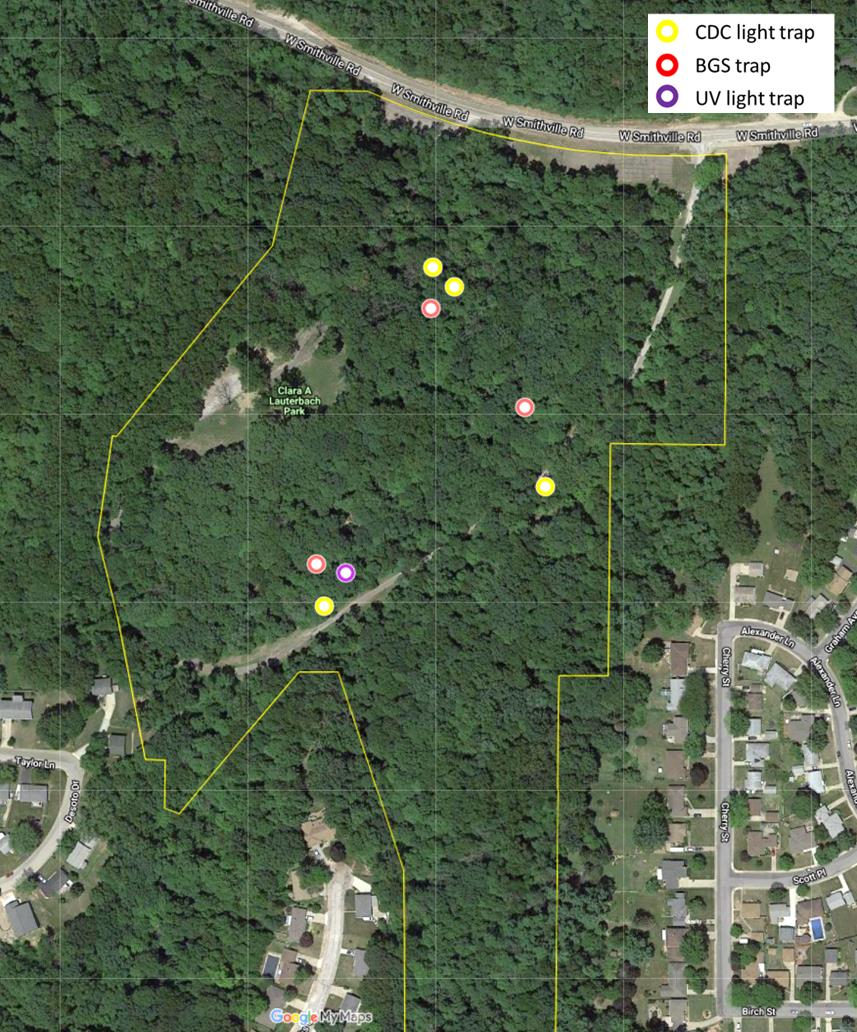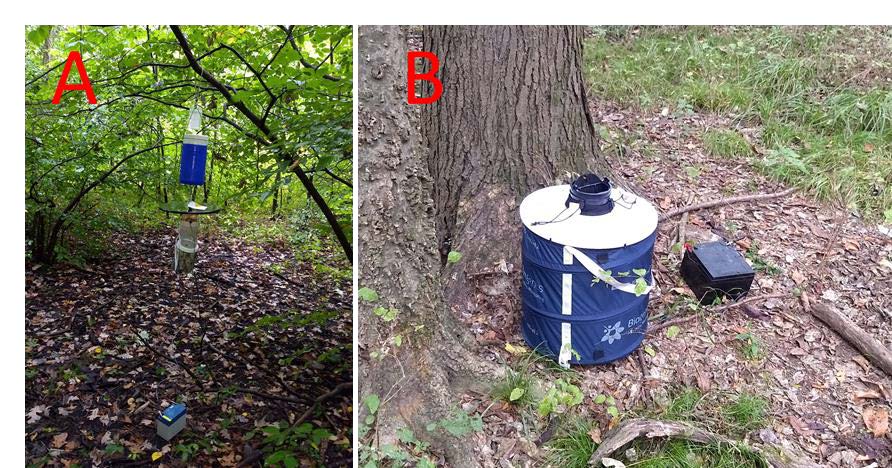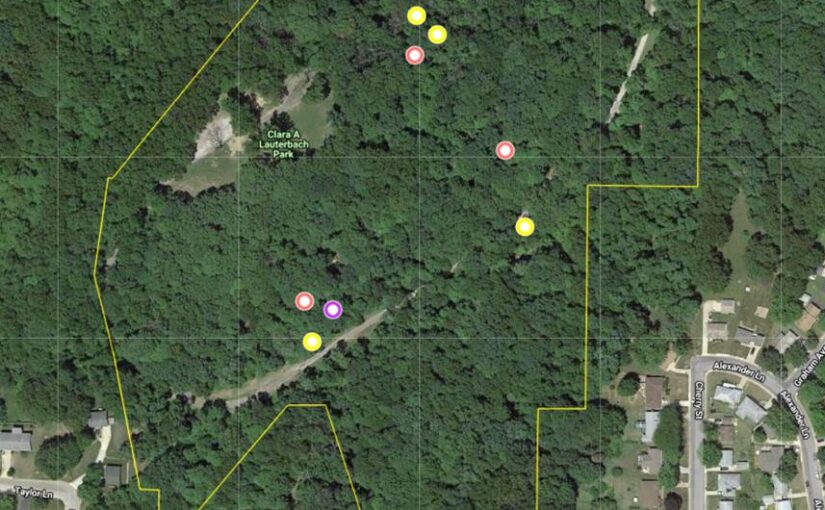Project description: Statewide Survey of Mosquito-borne Arboviruses and Their Vectors
Medical Entomology Laboratory, Illinois Natural History Survey
Primary Investigator: Christopher Stone, Director, cstone@illinois.edu
Permit Applicant: Andrew Mackay, Assoc. Scientist, amackay@illinois.edu
Objectives.
The main aim of this 3-year project (2020-2022) is to detect and characterize the transmission of mosquito-borne viruses of public health concern that are not typically tested for in Illinois. To accomplish this, we are sampling mosquitoes from several locations across the state and screening them for evidence of infection for a broad range of arboviral pathogens (examples: Eastern equine encephalitis virus, Jamestown Canyon virus, La Crosse encephalitis virus). Study sites were typically chosen based on their habitat suitability for several mosquito species implicated as important vectors of human pathogens. Information collected from this effort will also provide detailed insights into mosquito species assemblages throughout the state, and allow for monitoring for invasive mosquitoes species, novel mosquito-borne pathogens and the prevalence of insecticide resistance mechanisms in vector mosquito populations.
Field sampling
At Clara A. Lauterbach Park, we are proposing to place these devices at the approximate locations sampled in 2021 (Fig. 1). Beginning approximately 16 June, we plan to conduct adult mosquito sampling over a 24-hour period, every 3 weeks, and end sampling prior to 31 October 2022 (total 7 sampling dates). Two CDC-light traps and a single BG-sentinel trap will be placed at the “A” location; a BG-sentinel trap, a CDC-light trap and a UV-light trap will be suspended at the “B” location; and a BG-sentinel trap and a CDC-light trap will be placed at the “C” location.
All sampling equipment will be labelled with the investigator’s contact information, identified as part of an ongoing research study, and will be removed at the conclusion of the field season (i.e., on or before 31 October 2022). None of our activities are expected to result in environmental disturbances. Physical actions will be limited to the placement of mosquito sampling devices distributed across three sampling locations separated by at least 100 m, as described above.
Sample processing.
All mosquito samples collected will be transported to the INHS Medical Entomology laboratory on dry ice and stored at -80 C until processed. All mosquitoes will be identified and enumerated, and specimens of species known or suspected to be important arbovirus vectors will be pooled and screening by rt-PCR for the presence of several pathogens. Blood engorged mosquitoes will also be retained for later extraction and identification of host DNA.



